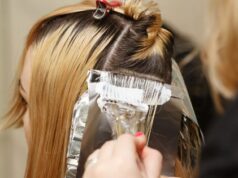If you have ever had to deal with dry winter skin then you may think you know what eczema feels like. But ask the people that live with chronic conditions what it feels like. Rashes can rear their heads at any time of year and it also includes irritants as mundane as food, clothes, and the weather.


However, there are many home remedies for eczema which can soothe the dry and itching skin. While you can also get proper treatment from an eczema specialist in London from the London Dermatology Clinic. If you want to try the home treatment then here are some natural remedies that you can try.
Aloe Vera Gel
As you might already know, aloe vera gel comes from the leaves of aloe vera. Aloe vera gel has been used for centuries to treat a wide range of ailments which also includes eczema.
Moreover, aloe vera gel has the following types of properties:
- Antibacterial
- Antimicrobial
- Immune system-boosting
- Wound healing and more
It is the antimicrobial effects that help in preventing skin infections which occur when a person has dry, cracked skin. Aloe’s wound-healing properties may soothe broken skin and can promote healing.
How to Use?
Just buy natural aloe vera gel from stores or get it directly from aloe vera leaves and apply in a small amount.
Apple Cider Vinegar
Another popular home product is apple cider vinegar that you can find at every supermarket. Apple cider vinegar has a number of advantages including treating skin disorders. This means it can also treat eczema according to the National Eczema Association (NEA). However, use apple cider vinegar with caution as the vinegar’s acid can damage soft tissues.
How to Use?
Always dilute apple cider vinegar before applying it to the skin. You can also use the vinegar in wet wraps or baths.
To use this in a wet wrap:
- Add 1 tablespoon of apple cider vinegar in 1 cup of warm water
- Apply the solution using a cotton
- Cover the dressing in clean cotton fabric
- Leave it for about 3 hours
To use apple cider in bath:
- Mix about 2 cups of vinegar to your warm bath
- Then soak yourself for about 15-20 mins
- And then rise the body thoroughly
- After that moisture within several minutes after leaving the bath
Colloidal Oatmeal
Avena sativa or colloidal oatmeal is made from oats that have been ground and boiled to extract their skin-healing properties. The colloidal oatmeal lotion has an antioxidant and anti-inflammatory property which improves:
- Skin dryness
- Scaling
- Roughness
- Itch intensity
How to Use?
Add powdered colloidal oatmeal to a warm bath and soak inside for some time. Choose the product that has oats as the only ingredient and avoid those with fragrances or any other additives. It is safe to use for all ages but if you are allergic to oats then avoid using it. People who are allergic to gluten should also avoid colloidal oats as they are often processed with wheat.
Baths
Did you know that you can treat your eczema while bathing? Yes, you have read it right! It is important to keep your body clean, bathing is considered as an important and major natural remedy for eczema. Whenever a person suffers from skin conditions like eczema, the skin needs extra moisture, as the outer layer isn’t producing natural moisture.
While washing can often dry out the skin and can even make eczema worse. This can occur when:
- Using water that is too hold or cold
- Using wrong soap
- Not moisturizing afterwards
Also, avoid bathing frequently and recommends that adults should:
- Bathe or shower at least once a day
- Use lukewarm water
- Limit bathing to 10-15 minutes only
- Avoid scrubbing the skin
- And use gentle cleansers instead of soaps
Long, hot showers will remove natural oils and moisture off the skin. So it is best to take shorter showers and keep the water at a warm temperature.
Even after doing so, your eczema doesn’t get treated then you need to visit a skin specialist in London.









